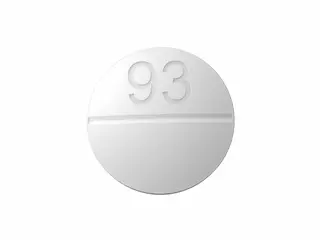Gastrointestinal Health
Discover a wide range of effective gastrointestinal health products designed to support digestion, relieve discomfort, and promote a balanced gut. Shop trusted supplements, medications, and remedies to maintain your digestive wellness with confidence.
Gastrointestinal health is essential for overall well-being. Many people experience issues like acid reflux, indigestion, diarrhea, and irritable bowel syndrome (IBS). Several medications are available to address these problems. Here, we review some popular drugs commonly used for gastrointestinal health.
Aciphex (Rabeprazole) is a proton pump inhibitor (PPI). It reduces stomach acid production. This helps treat GERD, ulcers, and Zollinger-Ellison syndrome. Patients often report relief of heartburn and acid reflux symptoms. Aciphex is typically taken once daily before a meal. It works fast and can improve symptoms within days.
Asacol (Mesalamine) is used to treat inflammatory bowel disease (IBD), including ulcerative colitis. It is an anti-inflammatory drug that acts directly in the colon. The medication helps reduce inflammation, pain, and diarrhea. Asacol is generally well tolerated, but some patients may experience headaches or nausea.
Colospa (Mebeverine) is an antispasmodic medication. It relieves muscle spasms in the gut. It is useful for IBS symptoms such as abdominal pain and cramps. Colospa works by relaxing the gastrointestinal muscles without affecting normal gut function. It is usually taken before meals.
Imodium (Loperamide) is an over-the-counter drug for diarrhea. It slows intestinal movement, allowing more water absorption. This helps reduce stool frequency and liquidity. Imodium is effective in controlling acute and chronic diarrhea. It is not recommended for diarrhea caused by infection unless advised by a doctor.
Maxolon (Metoclopramide) is a prokinetic agent. It improves stomach emptying and reduces nausea and vomiting. Maxolon is often prescribed for gastroparesis or after surgery to aid digestion. It should be used short-term due to possible side effects like fatigue or restlessness.
Motilium (Domperidone) also enhances gastrointestinal motility. It increases the movement of the stomach and intestines. Motilium is used for nausea, vomiting, and bloating. Compared to Maxolon, it has fewer central nervous system side effects, as it does not cross the blood-brain barrier easily.
Nexium (Esomeprazole) is another proton pump inhibitor. It reduces stomach acid and treats conditions like GERD, ulcers, and Zollinger-Ellison syndrome. Nexium is available in delayed-release capsules. It often provides symptom relief within a day or two. Long-term use should be monitored by a doctor to avoid complications.
Pentasa (Mesalamine) is similar to Asacol. It is used for ulcerative colitis and Crohn’s disease. Pentasa releases active medication throughout the bowel, treating inflammation. It helps maintain remission and reduce flare-ups. Side effects may include headache and abdominal discomfort.
Pepcid (Famotidine) is an H2 receptor blocker. It decreases acid production in the stomach. Pepcid is used to treat and prevent ulcers and GERD symptoms. It works faster than PPIs but may be less effective for severe acid-related conditions. It is often taken twice daily.
Prevacid (Lansoprazole) is a proton pump inhibitor that reduces stomach acid. It treats GERD, ulcers, and Zollinger-Ellison syndrome. Prevacid is typically taken before meals. It can improve symptoms of heartburn and acid reflux within a few days. Long-term use requires medical supervision.
Prilosec (Omeprazole) is one of the most commonly used PPIs. It suppresses acid production in the stomach. Prilosec treats GERD, stomach ulcers, and other acid-related diseases. Most patients see symptom improvement in one to four days. Prilosec should be taken before meals for best effect.
Protonix (Pantoprazole) reduces stomach acid secretion. It treats GERD, erosive esophagitis, and Zollinger-Ellison syndrome. Protonix is often given once daily. It has a good safety profile with few side effects. Patients typically experience relief of heartburn and related symptoms.
Reglan (Metoclopramide) is similar to Maxolon. It enhances stomach emptying and controls nausea and vomiting. Reglan is used for diabetic gastroparesis and postoperative nausea. Long-term use should be avoided to prevent side effects such as tardive dyskinesia, a movement disorder.
Xifaxan (Rifaximin) is an antibiotic used to treat certain gastrointestinal infections and conditions. It treats traveler's diarrhea, hepatic encephalopathy, and IBS with diarrhea. Xifaxan works with minimal absorption into the bloodstream, reducing systemic effects. It helps by targeting gut bacteria that contribute to symptoms.
In summary, gastrointestinal health medications target acid reflux, inflammation, infections, diarrhea, and motility issues. Proton pump inhibitors like Aciphex, Nexium, Prevacid, Prilosec, and Protonix are widely used for acid-related conditions. Anti-inflammatory drugs Asacol and Pentasa help with inflammatory bowel diseases. Antispasmodics like Colospa aid in relieving abdominal cramps. Medications such as Imodium control diarrhea, while prokinetics like Maxolon, Motilium, and Reglan enhance gastric motility and reduce nausea. Xifaxan is effective for certain infections and IBS symptoms.
Choosing the right medication depends on the specific condition, symptoms, and patient history. It is important to consult a healthcare professional before starting or changing treatment. Many of these drugs have potential side effects and interactions. Proper use and dosage ensure the best possible results for gastrointestinal health.













